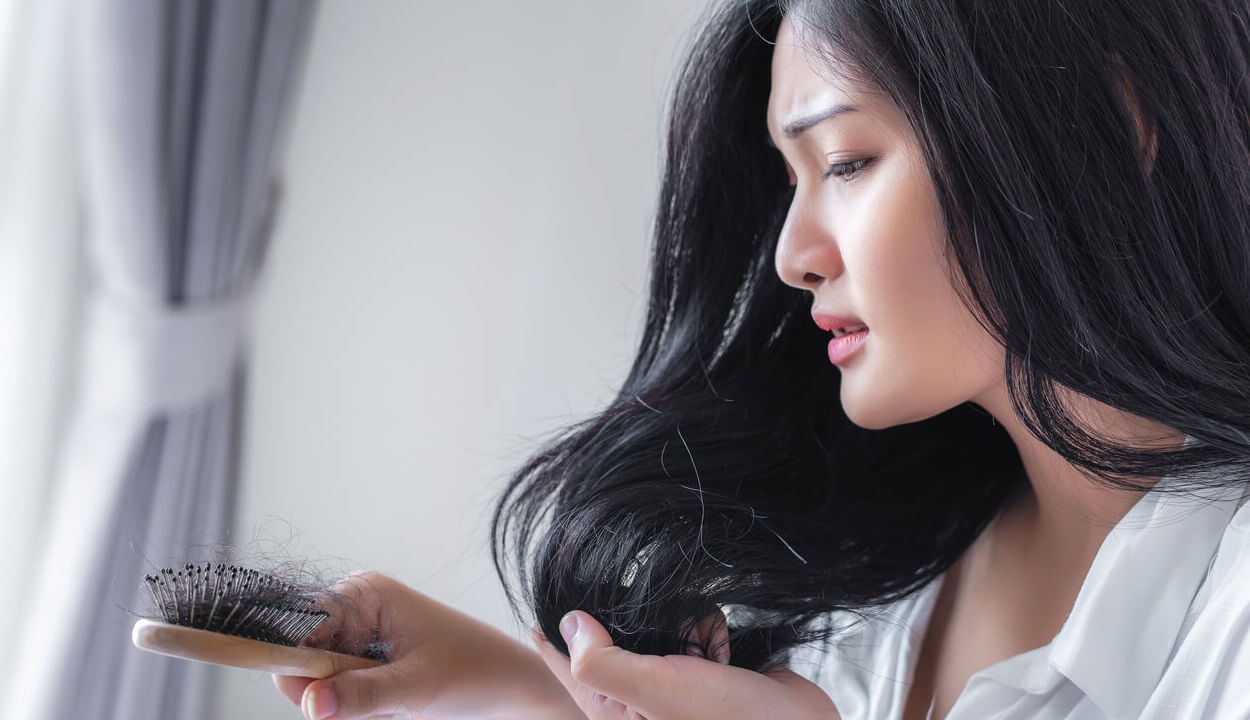What is the Best Hair Loss Treatment for Women?

Female pattern hair loss can be devastating. It is a hereditary disease that has no cure. Fortunately, our physicians at Yaker know the best hair loss treatment for this condition.
In this post, we address some frequently asked issues concerning female pattern hair loss, and the best treatments available today.
Keep reading.
When does hair loss start in women?
Most women suffer from hair loss at age 50 when estrogen and progesterone levels begin to fail. This hormonal imbalance can trigger female pattern baldness.
Female hair loss may occur due to environmental and lifestyle factors. Strong hair products and treatments can also be harmful to the scalp. Stress and a lack of nutrition may hinder the proper operation of hair follicles.
What causes female pattern baldness?
Genetics, age, and hormonal changes all contribute to hair loss. Estrogen levels drop, causing hormonal changes during menopause. DHT, a hormone linked to baldness, suppresses the growth of hair follicles.
Female pattern baldness, or androgenic alopecia, is a hereditary condition. You cannot avoid losing your hair due to this illness. However, you may be able to get treatment for your thinning hair.
What is the best hair loss treatment for women?
Hair loss treatments depend on the cause of baldness. If stress is the cause of hair loss, then stress management modalities must be used. If it is due to hormones, then hormone therapy may help.
The hair loss medication minoxidil is an option for women with female pattern baldness. Depending on the extent of hair loss, and the availability of healthy donor hair, women may also opt for a hair transplant surgery.
Can women have hair transplant surgery?
Over 90% of men are good candidates for hair transplant surgery. However, this number does not apply to women. Only a tiny percentage of women are candidates for hair transplant surgery. For most women, hair loss happens as an overall thinning of hair in all areas of the head – including the back of the head where donor hair will be extracted.
However, there are certain conditions in which women may have hair transplants. Women have hair transplant surgery in these situations:
- Hair loss caused by mechanical or traction alopecia
- Hair loss following cosmetic surgery at the areas of incision
- When women’s hairlines recede, but they have enough donor follicles
- Hair loss due to bodily harm, such as burns and injury scars
Women may have hair transplant surgery if they have healthy hair at the back and the sides of the head.
Does PRP work for hair loss?
More and more people are becoming interested in plate-rich plasma as a hair loss treatment. PRP uses proteins that aid in hair regrowth. However, PRP injections may have adverse effects. If you’re interested in PRP for hair loss, you can speak with our expert physicians at Yaker.
Some patients now receive PRP injections in addition to traditional hair loss therapies, such as medication. According to growing clinical data, PRP might help those who are experiencing hair loss. Most PRP studies state that patients have to get a follow-up after surgery.
Request a Consultation with Dr. Yaker
Female pattern baldness can be quite depressing. There is practically no cure for this genetic condition. However, there are several advanced hair loss treatments available today.
If you want to know what hair loss treatment suits you best, request a consultation with Dr. Yaker. Get in touch with us today. Yaker Hair Restoration + Med Spa serves patients in Plano and Richardson, Texas, and surrounding areas, including Dallas, Irving, Arlington, and Fort Worth.
